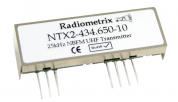Community run communication
If you choose not to rely on electronic communication, thats great. But for those of us who do, isn't it time we set up community run alternatives?
Contents |
Problems with existing communication networks
Gradually, the internet, which once seemed like a relatively free and user-controlled system – at least compared with totally centralised TV/radio broadcasting, becomes a controlled commercial space where people don't trust each other and we are constantly under the eyes of authorities and businesses - much like our city centres.
Centralisation of control, censorship, privacy
Two examples: In feburary 2012 the non-profit website 'scroogle' which offered an alternative version of google (where searches were not recorded) was taken down after action against it taken by google. Then in march 2012 google put into practice their new privacy policy, making users search history available to other google owned sites. Of course other sites exist which provide secure web searches.
During the uprising in Egypt 2011 there was an internet blackout, making it clear that such a communication network is valuable for organising social change but sadly rests in the hands of companies willing to cooperate with the authorities. Since then the US has began to develop an 'internet kill switch'. See the US Open congress bill 'Protecting Cyberspace as a National Asset' and indymedia article Internet Freedom Fighters Build a Shadow Web
- la quadrature du net advocacy group for internet freedom
- Telephone portable, gadget de destruction massive zine (fr) pdf sur infokiosques.net
- Ne laissez pas les machines jouer avec les enfants zine (fr) pdf sur infokiosques.net
- quema tu movil (Es) zine pdf (burn your phone)
ideas for alternatives
In order for a community run network to become popular, it might be useful to have some universal standards, and a way for different networks to link together. A small group might use high frequencies to get high bandwidth communication locally, but how can we connect that communication with lower frequency, longer range links to other communities? If we are going to set up some sort of repeaters or base stations to link groups, they need to be useful to everyone, and not dependent on other parts of the network. Some repeaters might be installed in vehicles or boats that move around. Or they might be dependent or wind or sun for power – so they cannot be always relied upon.
storytelling
It is relevant here to question what is important to us in a communication network. Simply spending time with and talking to people around you is a very useful way to communicate. Any kind of centralisation or broadcasting of information (such as the use of a printing press) could be argued to be detrimental to the autonomy of individuals and communities. when we look at examples in 'nature' we can see that beautiful organised structures come about as the result of a large number of low level interactions.
amateur radio
'amateur' radio communication has existed for over a hundred years. It is both a local and an international network and has often been relied upon when other communications have broken down because of disasters such as floods. Data modulation systems such as PSK31 can allow text services similar to email or sms, which can operate over thousands of miles on HF. Using the amateur bands requires a lisence and an official 'callsign', which are relatively cheap and easy to get, but there are restrictions which may cause a problem. For example sending encrypted messages is forbidden, and the lisencing association stores personal details of its users and will cooperate with governments. Of course we could use similar systems illegally, but as an existing nework it has the advantage of having estabilished and well documented international standards, as well as infrastructure such as repeater stations.
- AMPRNet Amateur packet radio network, also known as hamnet, is the name given to computer networks connected by amateur radio links. TCP/IP (internet protocol) packet radio networks have existed since before the puplic internet but have never been very popular, partly because of bandwidth restrictions (VHF links are commonly limited to 9600 baud). Interestingly radio amateurs are allocated a chunk of the IPv4 address space (44.0.0.0/8).
- Hinternet on noisebridge
- High Speed Multimedia Radio this article looks at using 802.11 wifi on different amateur bands.
- Low cost E-mail over HF with OFDM and turbo coding. This project looks to be a robust long distance solution. It uses newqpsk (or Q15X25) protocol with the 'soundmodem' software. OFDM seems to be gaining popularity in these lower parts of the spectrum, but I have a bit of trouble understanding this example, since it is a modulation mode, but a standard HF transciever is used.
Using simple, low cost transcievers for data
A simple solution can be to use low cost UHF transmitters/recievers with RTTY. There are some very cheap transmitters sold on ebay, some sold for use with arduino or raspberry pi (see issue 8 of magpi magazine). The problem is that the cheaper ones do not support channel selection, so would interfere with each other.
- Radiometrix, based in the UK, make quite good quality but still fairly cheap stuff. Also some transcievers with chanels selection and more high end radio modems.
- Linking an Arduino to a Radiometrix NTX2 Transmitter this guide explains how to connect one of these simple transmitters.
pirate radio broadcast
pirate radio can be empowering for a community and is useful tool for combining art and information. but the nature of broadcast is that it remains a one-to-many monologue, and care must be taken that it remains participative and is not misused. Most pirate radio is on FM, but it would be interesting to experiment with AM and longwave.
- Radionecks mostly london based pirate radio forum. there is a lot of interesting stuff, and also a place to buy and sell kit.
- Making waves:pirate radio for actikids pdf zine
- Complete manual of pirate radio pdf book, quite old
- ukw-senderbau.de sells transmitters and other kit
- FMA200 tunable 5/8 wavelength antenna. This is a recommended antenna.
free radio berkeley
wavelength calculation
wavelength lamda = c / f c = speed of light = 299,792,458 m/s or use c = 3 * 10 ^ 8 so 100mhz = almost 3m
- strato -antenna design
companies selling radio or electronics stuff
- [4] cb kit and antennas`
- cbplus
- e44
- selectronic
darknets
networks which exist 'outside' the internet are gaining popularity. Many of them are comprised partly or entirely by internet 'tunnels' meaning they are not independent of interenet, but aim to create free and secure alternativesw within it.
- GNUnet GNUnet is a framework for secure peer-to-peer networking that doe




